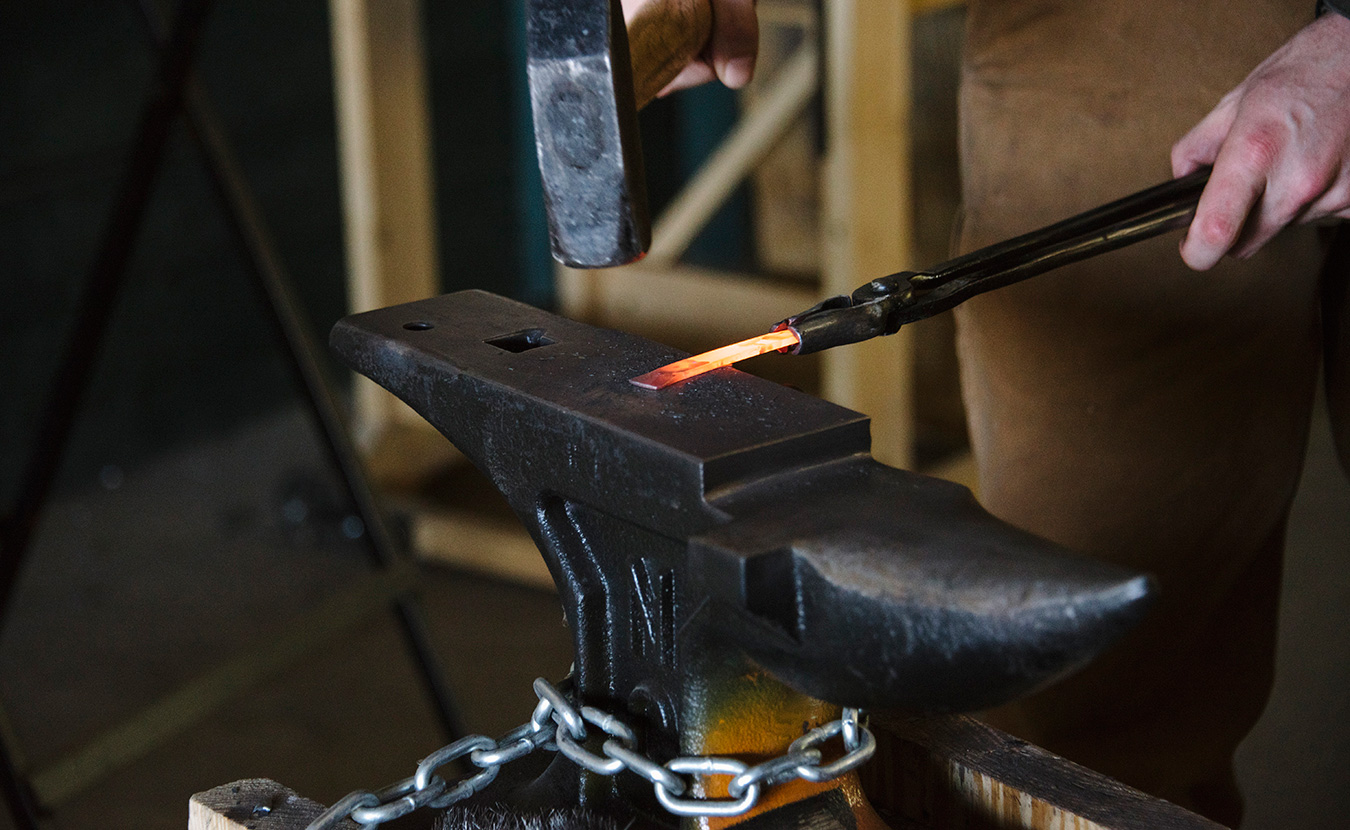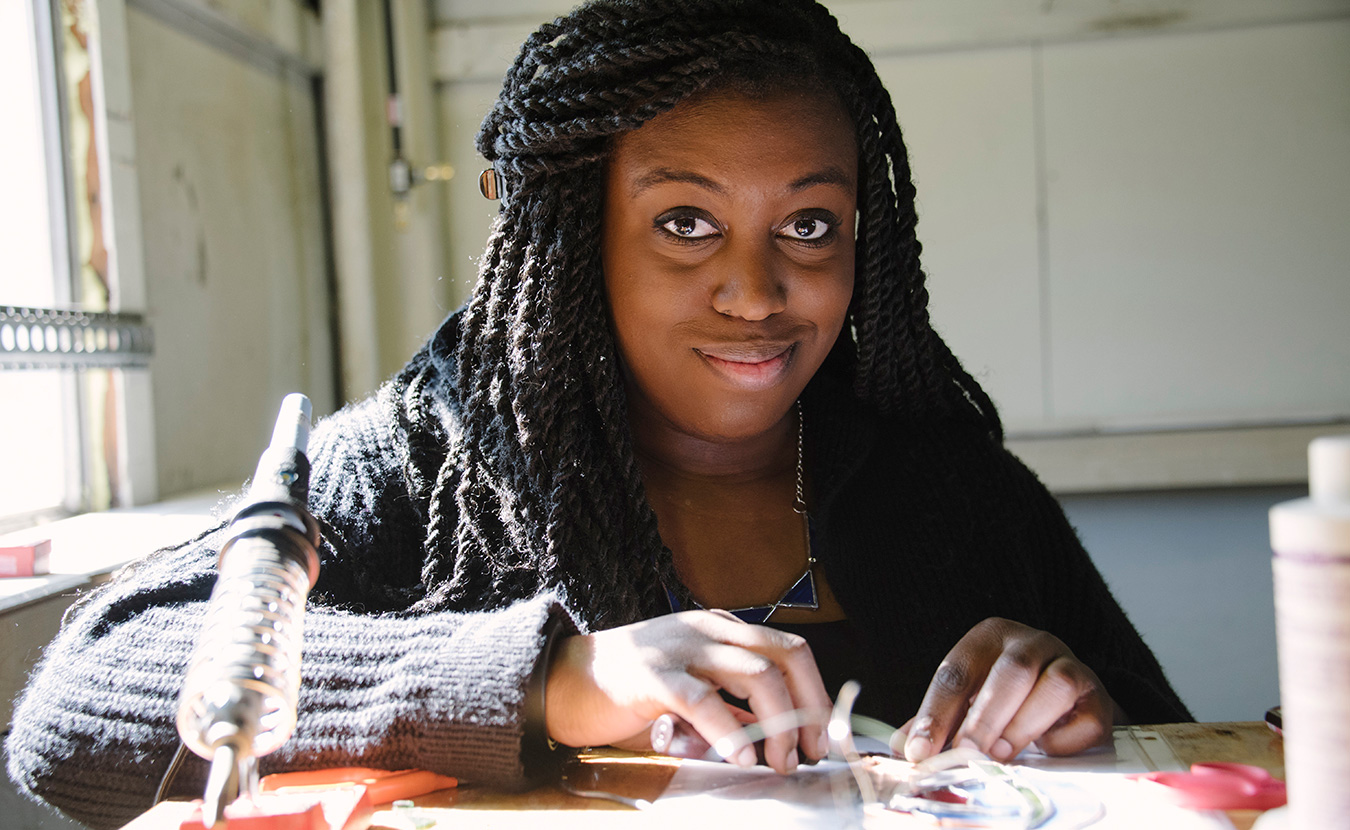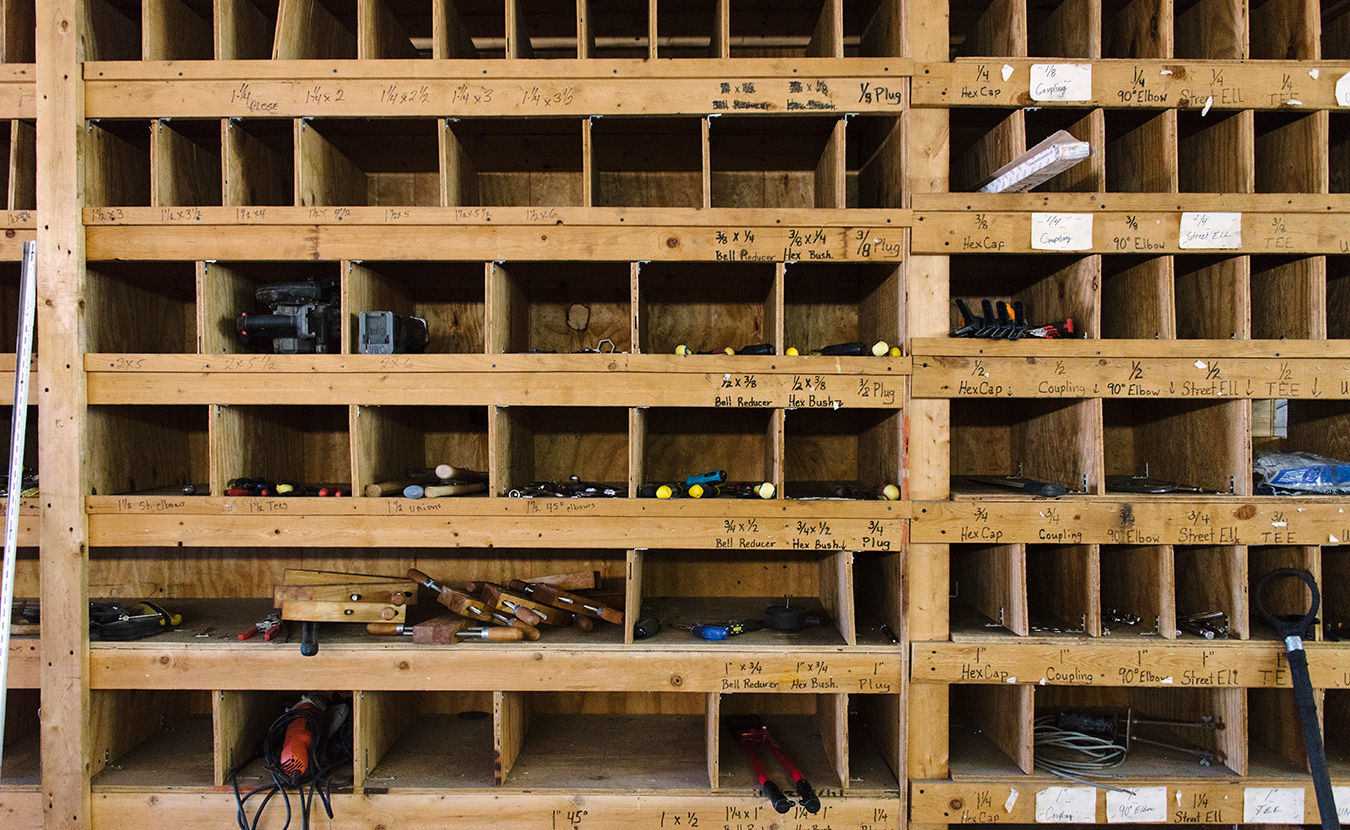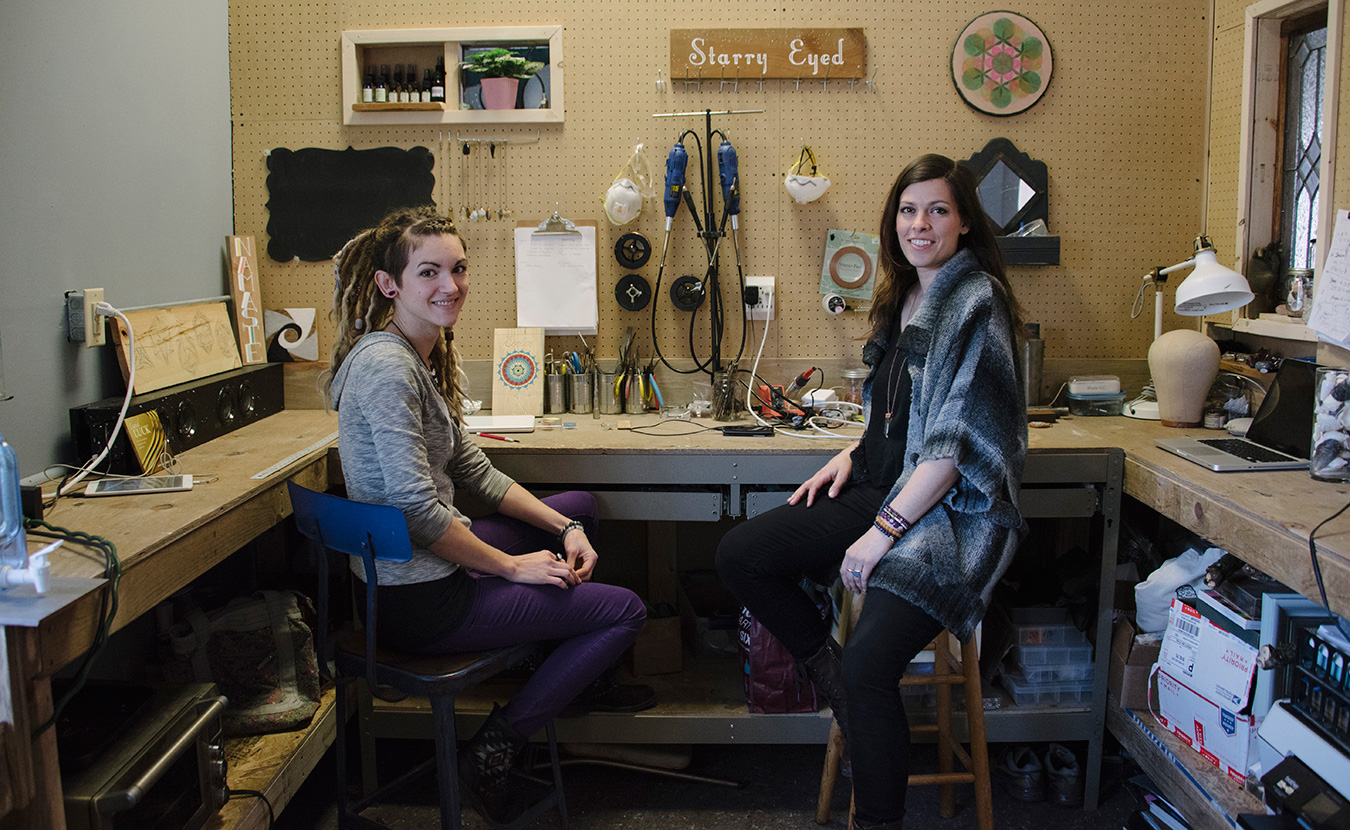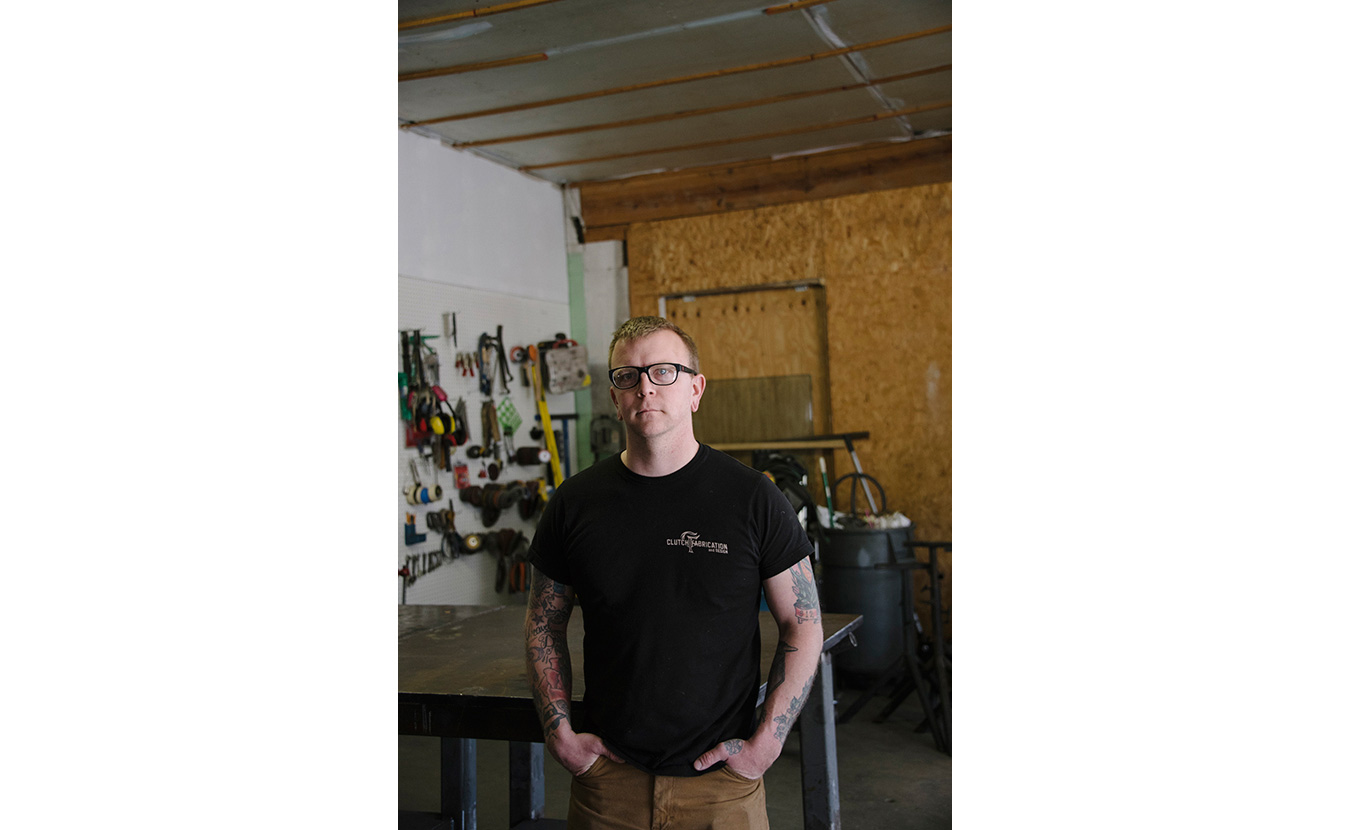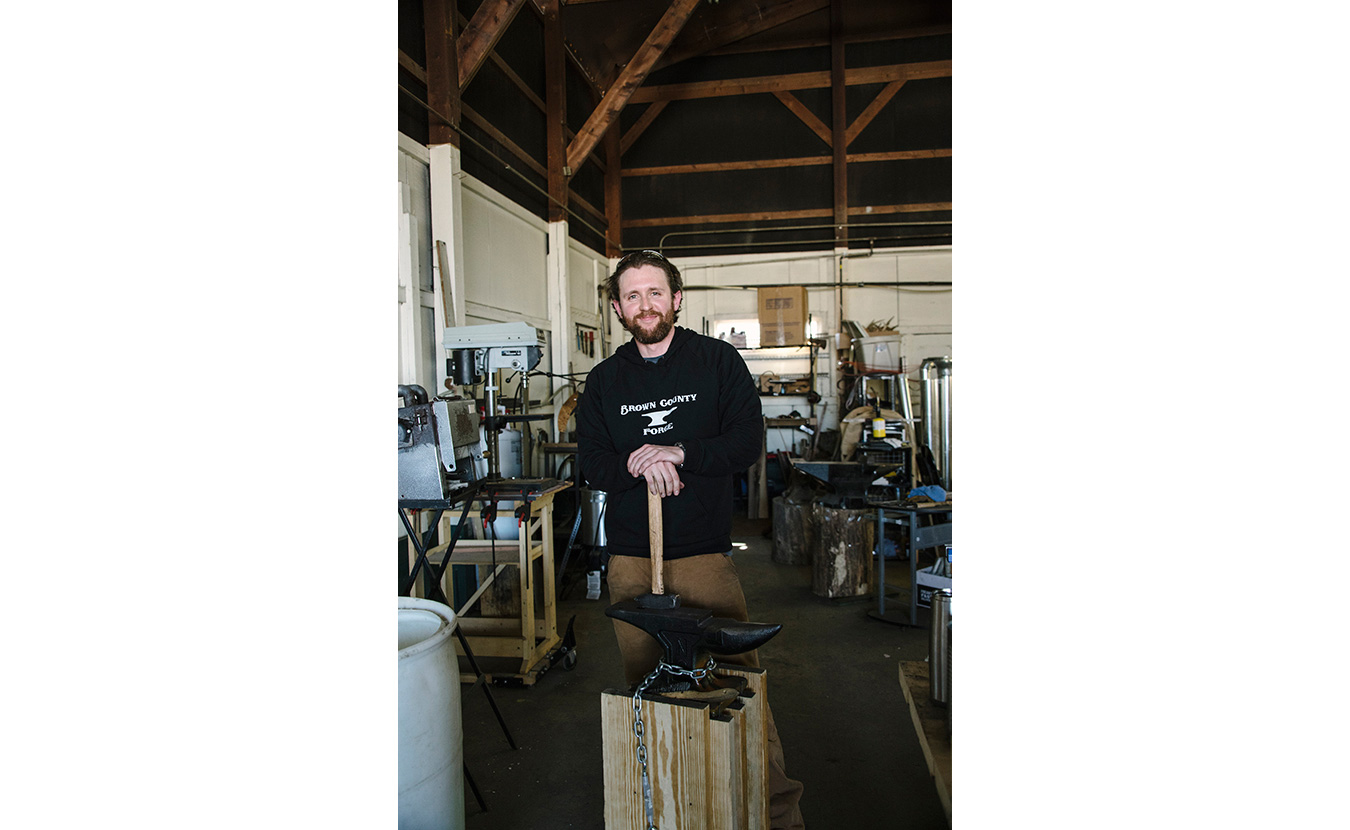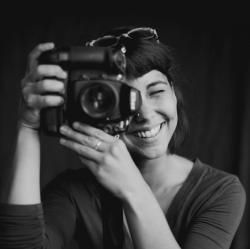On a bleak industrial property off of South Rogers Street, hammer strokes clang against anvils and red-hot steel bars twist into shape. This once derelict property, formerly a shipping container yard, is the fledgling home of the artists’ collective called Artisan Alley.
The bustle of glassblowers, welders, artists, and craftspeople belie the humble beginnings of the three-and-a-half-acre collective. Bloomington native and Artisan Alley founder Adam Nahas says his vision for the center began years ago when he received a small-business permit and opened Trained Eye Arts on North Fairview Street.
“We started as seven guys in this random commercial building, all with different backgrounds, and it turned into something we really enjoyed and we wanted to keep going,” Nahas says. But before Trained Eye could get off the ground, Nahas says his group had to move.

Adam Nahas, right, founder of Artisan Alley and Cody Craig, director of the Ingot Workshop. | Photo by Natasha Komoda
In his hunt for a new space, Nahas says the city asked him if he’d like to move into the vacated property south of Sweet Grass Restaurant and Feast Market & Cellar. Demand for the building was low due to the city’s eventual goal of turning the property into Switchyard Park, which will demolish Artisan Alley’s existing location for the city’s beautification project at an undisclosed future date.
As of now, Nahas says the artists’ colony has a five-year lease agreement with the city at a discounted rate. He says this allows him to offer pretty good deals on the space he lets. But Nahas is much more than a landlord; formerly an employee of a foundry, he uses his handiwork to renovate the property’s three warehouses according to its tenants’ needs.
Two of those warehouses are known as the Burl and Ingot workshops: Burl is named after the hardened wood that comes from a knot on a tree; and Ingot, after industrial raw-metal stock. Ingot houses the Tool Library, run by the workshop’s director, Cody Craig, which provides the industrial backbone and arguably the biggest incentive to join the collective.
Artists, or just about anyone working on a project, can “check out” a tool from the extensive selection in the tool-share library. People who have the right skill set for each tool train others on its proper uses and safety precautions.
Nahas says he’s looking forward to expanding the tool library and moving into heavy machinery. It’s a big investment, he says, but it will drive up membership to Artisan Alley.
“Most of this I kind of run like a nonprofit,” Nahas says. “A lot of our revenue gets rolled back into our projects.”
Nahas works with each artist to make sure the space is suitable for their craft, such as Richard Liu and Wudy Ng, two of Artisan Alley’s newest tenants. The Chinese Indiana University students opened their own photography studio in a space Nahas continues to renovate for them.

Painter Nicole Pancini has a studio and, as a favor to the other artists, manages Dimensions Gallery in the collective. | Photo by Natasha Komoda
“We wanted to have our own studio space, our own darkroom,” Liu says. The pair photographs Bloomington’s immigrant communities, and their passion led them to pursue their talents outside of IU, where students must be enrolled in a class in order to use the darkrooms. Instead, the two — neither of whom is getting his degree in photography — decided to rent their own space and develop their photos themselves.
Their elegantly decorated studio’s walls are lined with old cameras and portraits developed and printed just behind the parlor. The darkroom itself is getting a new sink installed, and the caulking around the door and walls wears a fresh coat of paint. They, like most of the tenants of Artisan Alley, just moved in.
“We used to develop the film at home in our own bathrooms, so we figured we wanted to have a bigger space — like a studio space — so we just Googled ‘artists space’ and found this place,” Liu says.
When asked where they found a photographic enlarger and chemicals, Ng and Liu simultaneously respond, “Ebay.”
Liu and Ng don’t have to go far when it comes to displaying their work; besides the portraits on their walls, just outside their door is Dimensions Gallery, managed by painter Nicole Pancini, which she says she runs as a favor to the building and the other artists in the collective. Pancini also has her own studio space right off the gallery.
Next door, Max “Rowdy” Van Deneede is heating glass pipettes with a blowtorch and rolling them into shape. His space is also extensively upgraded, with fireproofing and heat resistant paneling lining a wall. Van Deneede says his business — Rowdy Glass Company — barely breaks even most days, even with the discounted rental rates in Artisan Alley.

Max “Rowdy” Van Deneede, owner of Rowdy Glass Company, working in his studio. | Photo by Natasha Komoda
“Local shops don’t really buy [my glass work],” Van Deneede says. “There’s a big thing with shops where they buy online pieces from other countries, so if you were to compare it to my glass, it’s not as good quality, but they can get it for cheap.”
The self-taught glassblower says he works 40 to 60 hours a week in his studio, which he’s been in for six months.
“I pay my bills and that’s about it,” Van Deneede says. “And that’s really all that any artist can really ask for, I think: just doing what you love and paying your bills.”
Event information:
Some thirty artists and vendors — as well as performers, musicians, and food trucks — will showcase their work at Artisan Alley’s open house and art fair, “Artisan Alley Presents: Art in Bloom” at 1607 S. Rogers St. on Saturday, March 26. Click here for more information.

